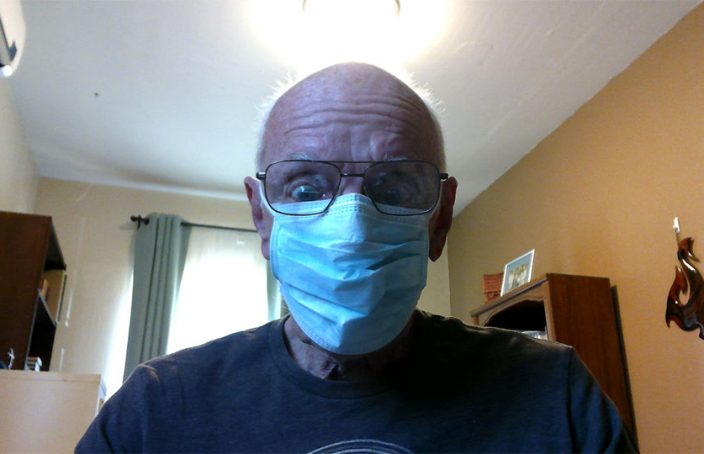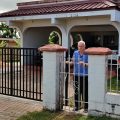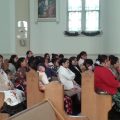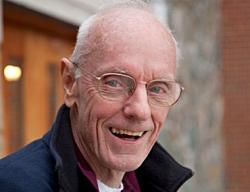Under Tight Wraps
Bishop Mike Byrnes looked hollow-eyed and weary on our clergy Zoom teleconference last Friday. He looked the way all of us felt, I remember thinking to myself.
The lock-down prompted by the Coronavirus seems to be getting more stringent each week. The basketball court in our village has now been padlocked, so another outlet is denied. No more shooting baskets by myself on a dreary afternoon. At the supermarket lines are marked on the floor for checkout so that customers keep six feet from one another.
Last week I received a visit from a Public Health official informing me that someone who tested positive for the virus listed me as a recent contact. Now I receive daily phone calls asking if I show any symptoms and whether I have been staying home as I should under quarantine. In truth, I feel double-quarantined these days. If I thought the lock-down was bad when masses were cancelled and all contact with parishioners ended, this is adding new padlocks on the door. Staying at home these days means not even going to the store for groceries.
A priest here at the rectory gave me a face mask, instructions on how to use it, and the kindly suggestion that I wear it whenever I go to the dining room or TV room of the rectory. Now I feel like a rabid dog…a Darth Vader look-alike.
But there’s also a bright side to the impact of the virus, as on-line postings inform us and our own experience confirms.
My cell phone is ringing much more often these days–friends calling who just wanted to chat. They had the time, God knows, but perhaps not the companions at home. They might begin with the conventional “Am I interrupting you?” Then, an instant later, we would both laugh at the question. What is there to interrupt these days?
Food appears more frequently than ever. Perhaps not being handed directly to us priests, but left on the hood of the car by someone who would be familiar face if it weren’t for the mask. Tasty oatmeal cookies the other day. Freshly baked rolls along with sausage and cheese yesterday.
The virus has prompted a search for the personal contact that many of us so badly miss in these lock-down times. We have all seen this point made in the media, but sometimes it happens in surprising ways.
That was the point of a message sent from a former Peace Corps Volunteer who had lived in the same village in Chuuk I was staying in during my early weeks of language learning in 1972. Let me add that my language abilities were always being compared (unfavorably) with this volunteer, who not only spoke fine Chuukese but also read magazines in German and Russian.
Anyway this is what he writes from virus-infected New Hampshire:
People are far and away being nice to each other and looking out for each other. I see more neighbors than ever before as people walk the block. Some have added chairs and fire pits on the front lawn. They wave at all and chat at a distance. It is a bit of a village mentality.
Could this be a return to the deep past, when people sat on the porch and greeted one another by name as they walked past? Could this signal a revival of the neighborhood as we experienced it in the days when we were growing up? Well, maybe we need not go that far, but it certainly is a sign of how important a social life is to people who are being denied this because of the lock-down.
For me there has been an added dimension of the quarantine: silence that could be a pathway to intimacy with the God I should be serving. I just finished a retreat in the confines of my room that touched me as deeply as any I can remember. The take-away for me was a song line from the musical “Carousel” that comes up repeatedly in the Psalms: “You will never walk alone.” A message worth taking to heart during these days of enforced solitude.






